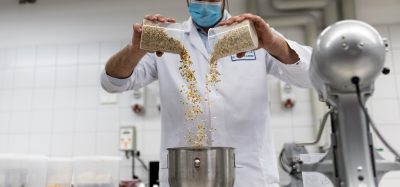Think big to make global food trade work for nutrition, says the FAO
Posted: 9 May 2018 | George Smith (New Food) | No comments yet
The FAO’s Directory General said institutions designed to boost food availability too often favour unhealthy foods.


CHANGING TIMES: Mr da Silva said the popular farm-to-fork model of the food chain does not capture the complex realities of food systems,
The Director General of the Food and Agriculture Organization of the United Nations (FAO) has spoken of the need for the world’s trade and regulation ‘rulebook’ to be ‘rebooted’ with an eye on health over price.
Addressing an audience in Rome at the presentation of the FAO’s 2018 Global Food Policy Report, José Graziano da Silva said facilitating the export of commodities to feed the world was a postwar imperative, but the relevance of that imperative has changed as “commodities became a synonym of industrialised processed food” and the threat of obesity is looming as large as that of hunger. “Now things are changing completely.”
The report was published by the International Food Policy Research Institute (IFPRI). This year’s edition is focused on how to rein in growing discontent with globalisation.
It runs over 130 pages, crediting 34 authors in eight chapters and seven ‘regional development’ summaries. Chapters include “Progress, Uncertainty, and Rising Antiglobalism” and “Achieving Food and Nutrition Security through Open Access Data”.
One of the authors was Shenggen Fan, the Director General of the IFPRI. He argued that a growing trend towards isolationist policies, evidenced by the United States’ withdrawal from the Paris Agreement on climate change and the United Kingdom’s actions following the 2016 Brexit referendum, was creating uncertainty for global food security and nutrition.
“We must go beyond production,” said Mr Fan, noting that key challenges in the pledge to end hunger include nutrition, employment, migration and the open sharing of knowledge and data.
He went on to say trade had an essential role to play in pursuing the global goals of eradicating hunger.
International trade increases food availability and can help increase food diversity, as when tropical fruits are sent to temperate-zone countries during the winter and cereals are sent in the other direction, he noted.
Over the last 40 years, the worldwide share of food calories crossing international borders rose from about 12 per cent to more than 19 per cent, according to the report.
Trade in food affects matters beyond calories and consumption. Mr Fan cited the example of China’s “virtual water” imports through food imports from Brazil, Canada and the United States, without which China’s own aquifers and rivers might be depleted.
To make sure trade’s positives outweigh potential negatives, it is important to create an environment that is inclusive, particularly for the world’s smallholders, he said.
“We need trade, as all countries, with no exception, need to exchange products to feed their population. The question is what kind of exchange,” Graziano da Silva said.
“To assure that future food systems will provide healthy food for all people, we’ll need a big change. We’ll need to think big if we really want to make this change.”
Related topics
Food Security, Research & development, Supply chain, Sustainability, Trade & Economy
Related organisations
Food and Agriculture Organization of the United Nations (FAO), International Food Policy Research Institute (IFPRI)









